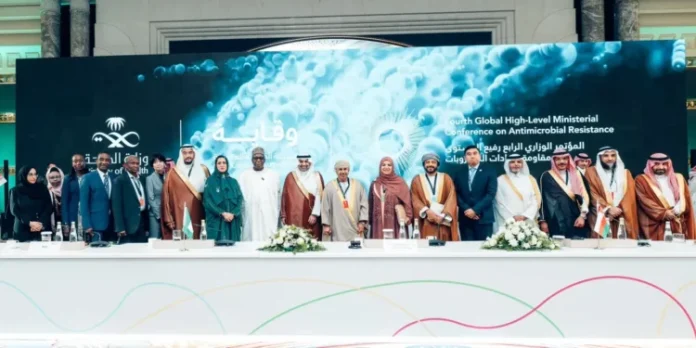Nigeria prepares to take center stage in the global fight against antimicrobial resistance (AMR) as it is named the host of the 5th High-Level Ministerial Conference on AMR in 2026. This announcement follows the conclusion of the 4th edition held in Jeddah, Saudi Arabia, from November 15 to 16, under the leadership of Saudi Arabia’s Minister of Health, Fahad Al-Jalajel.
Nigeria’s Coordinating Minister of Health and Social Welfare, Muhammad Ali Pate, confirms the country’s readiness to host the event, emphasizing the need for collective action against AMR. Pate, in a post on social media, expresses gratitude to Saudi Arabia for its leadership during the 4th conference and pledges to build on its success.
“We will learn and build upon the achievements of this year’s event,” Pate states. “Nigeria is prepared to welcome all member states in 2026, and we are counting on the troika system for a smooth transition and effective implementation.”
A Growing Threat
Pate underscores the severity of AMR, describing it as a “silent but dangerous problem” that threatens lives and livelihoods globally. He advocates for a unified “One Health” approach that integrates human, animal, and environmental health to prevent the spread of drug-resistant infections.
“We must prioritize prevention, ensure rational use of antimicrobials, and invest in research to develop innovative solutions,” Pate adds.
Key Outcomes from Jeddah
The Jeddah conference, themed “From Declaration to Implementation,” gathers global leaders, policymakers, and health experts to tackle the escalating AMR crisis. It culminates in the adoption of the Jeddah Commitments, which aim to strengthen governance, enhance surveillance, promote antimicrobial stewardship, and boost public awareness.
The commitments build on the 2016 Political Declaration on AMR adopted during the 79th United Nations General Assembly (UNGA79). They emphasize coordinated action to address AMR through prevention, responsible antimicrobial use, and investment in innovative solutions.
Saudi Arabia’s Legacy
Saudi Health Minister Fahad Al-Jalajel, who spearheads the 4th conference, highlights the importance of maintaining momentum through the troika mechanism—a system ensuring continuity and progress in AMR initiatives until the next conference in Nigeria.
“This is the time for action,” Al-Jalajel declares, adding that Nigeria’s selection as the next host reflects its growing role in the global AMR agenda.
Understanding AMR
The World Health Organization (WHO) defines AMR as the ability of bacteria, viruses, fungi, and parasites to resist medications, making infections harder to treat. This phenomenon increases the risk of severe illness, disease spread, and fatalities.
During UNGA79, world leaders set ambitious targets to combat AMR, including reducing drug-resistant infections, scaling up prevention measures, and adopting a One Health approach to address AMR across all sectors.
Nigeria’s Role in the Global Fight
As Nigeria gears up to host the 2026 conference, the country’s leadership vows to drive forward impactful actions against AMR. The event promises to strengthen global partnerships and accelerate the implementation of critical strategies to combat this growing threat.













